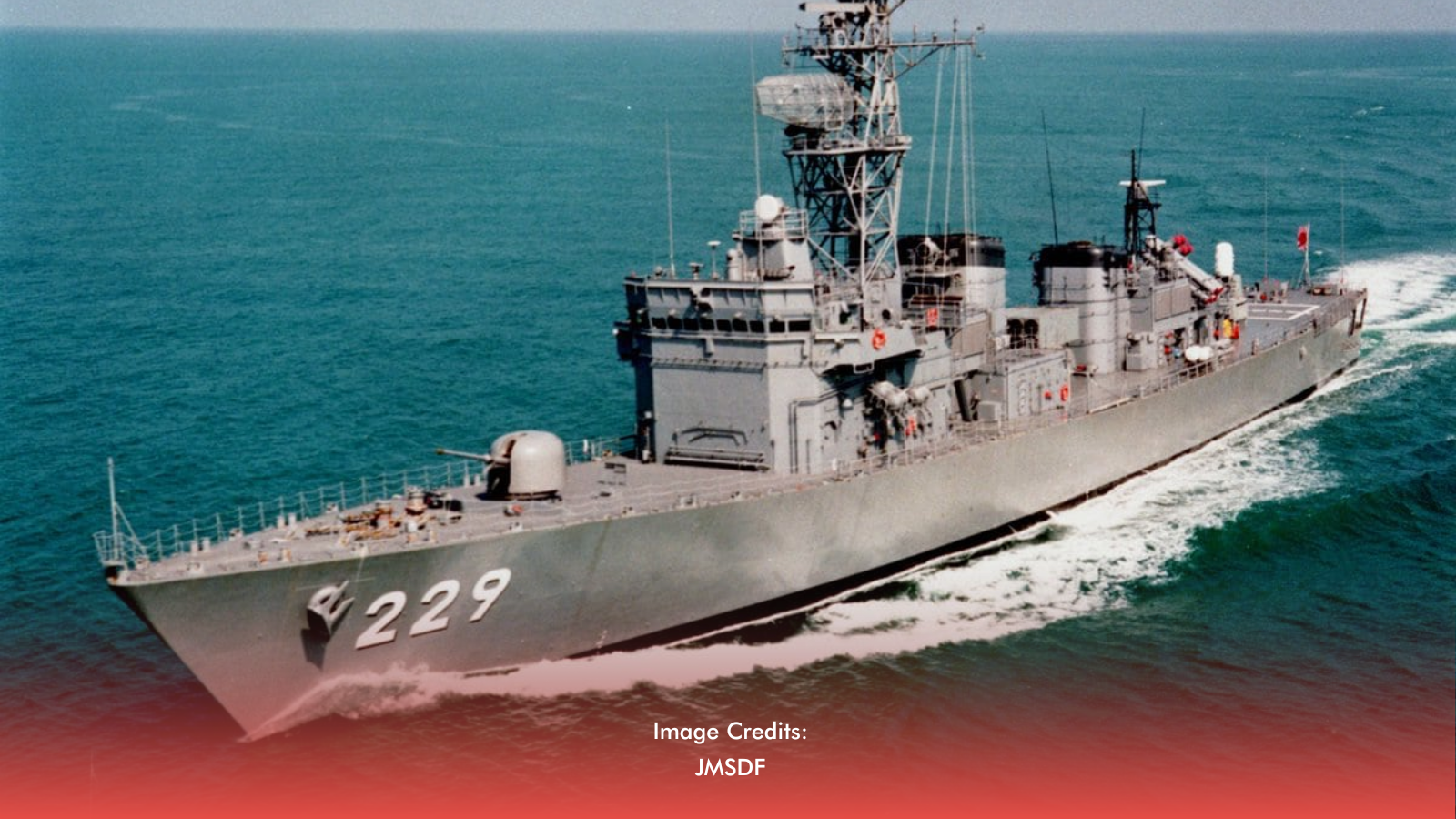The Philippine Navy (PN) is evaluating Japanese warships for possible acquisition as part of its efforts to boost maritime defense capabilities. Naval experts recently inspected six Abukuma-class destroyer escorts of the Japan Maritime Self-Defense Force (MSDF) to determine their viability as future additions to the fleet.
Earlier in July, the Navy confirmed its interest in acquiring the warships to enhance patrol and border security. According to Japanese reports, PN officials visited the MSDF’s Sasebo base in Nagasaki to inspect the Jintsuu, one of the Abukuma-class vessels that are scheduled to be decommissioned starting in 2027 and replaced with newer Mogami-class frigates.
RELATED: [PH Joins Malaysia-Led Naval Exercises To Strengthen ASEAN Security]
Capabilities of the Abukuma-Class Warship
Abukuma-class destroyer escorts measure 109 meters in length, carry a standard displacement of 2,000 tons, and are equipped with anti-ship missiles. While considered aging assets by Japan, the PN noted that their systems may still be functional and adaptable for Philippine defense requirements.
The Navy stressed that acquiring second-hand ships does not mean the country is becoming a repository of obsolete equipment.
“Although decommissioned by another country, they still retain certain capabilities that we may repurpose for add-ons,” former Navy spokesman Capt. John Percie Alcos explained.
Rear Adm. Roy Vincent Trinidad also emphasized that vessels nearing retirement can still perform critical functions if assessed and maintained properly. This view supports the Navy’s position that older platforms, when upgraded, remain valuable for missions such as patrol, surveillance, and deterrence.
Strengthening Cooperation with Japan
The possible transfer of Japanese warships is also seen as part of broader security cooperation between Manila and Tokyo, both of which face persistent challenges from Chinese incursions in contested waters. Sources cited by NHK World Japan said Japanese officials are working to realize the plan, which aligns with the shared goal of enhancing regional maritime security.
Japan’s Defense Ministry, however, must ensure compliance with its three principles on the transfer of defense equipment and technology. While the policy generally restricts the export of lethal weapons, it allows transfers under joint development or production agreements.
The Philippine Navy has underscored that Abukuma-class destroyer escorts would be suitable for operations in the country’s maritime environment, particularly in bolstering patrol coverage and complementing its modernization efforts.
As discussions progress, the evaluation marks another step in the Philippines’ strategy to secure cost-effective yet capable assets to safeguard its waters while deepening its defense partnership with Japan.
RELATED: [PH, Japan Forge Stronger Defense Alliance Amid Regional Tensions]








